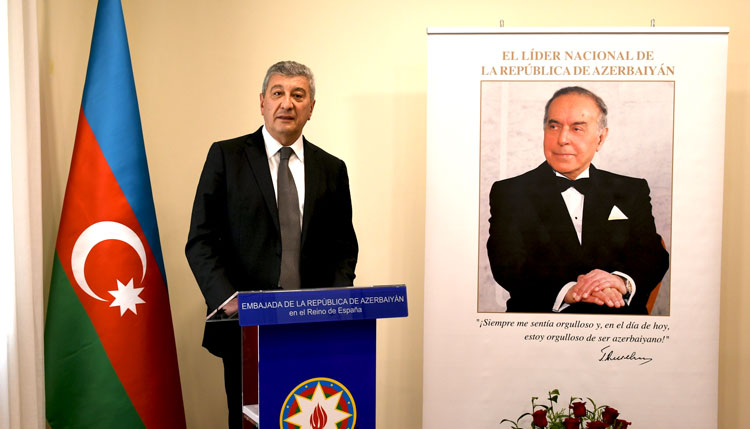The Diplomat
As announced, the governments of Spain and Portugal yesterday simultaneously approved the “exceptional mechanism” authorized by the European Union for the two Iberian countries to adjust electricity prices in the wholesale market.
The two countries held extraordinary Councils of Ministers yesterday to approve a cap of 40 euros per megawatt/hour on the price of gas used to produce electricity. This adjustment, according to the Spanish government, will allow the megawatt hour to fall from around 210 euros in recent months to 130 euros. The reduction will be in force for one year.
According to the Government spokeswoman, Isabel Rodríguez, at the press conference after the Council, this measure will make the electricity bill cheaper “for families, households, small and medium-sized companies, the self-employed and, in a very relevant way, for industry as well”. It will also contribute to slowing down the upward trend in prices and will provide certainty in an economic context conditioned by the war in Ukraine.
For her part, the Third Vice-President and Minister for Ecological Transition and the Demographic Challenge, Teresa Ribera, stressed that this mechanism was agreed between Spain and Portugal with the European Commission, which has understood the “specific circumstances” of two countries with a very low electricity interconnection with the rest of the continent. Thanks to this, she said, the Iberian area will have, for twelve months, a special protection system in times of great volatility and uncertainty.
In broad terms, according to Ribera, the mechanism consists of a limitation on the reference price of gas when selling to the electricity system. This cap will start at 40 euros per megawatt hour for six months and will increase thereafter, month by month, until it reaches an average of 48 euros. Thanks to this cap, the average price of electricity will fall significantly to around 130 euros per megawatt hour on average over the year, compared to 210 euros in the first quarter of 2022 (and with much higher peaks). The entry into force of the regulation will take place the day after publication in the Official State Gazette. In any case, according to the vice-president, it will be necessary to wait for the European Commission to formally endorse the regulation to be published in the official gazettes of both countries.
For his part, the Portuguese Minister for the Environment and Climate Action, Duarte Cordeiro, declared at the press conference following the Council of Ministers in Lisbon that this is “an exceptional measure” due to the war in Ukraine, and that it will last for twelve months, which will include the period of highest electricity consumption (autumn and winter). “By limiting the price of natural gas to a maximum ceiling, for the purposes of electricity production, a very significant reduction in the cost of electricity will be obtained, taking into account the price references registered during this year, thus generating savings for families and companies,” he added. In Cordeiro’s opinion, the fixing of this gas price ceiling will allow savings of up to 18% with respect to the average price of the first four months of the year.
“The mechanism, now approved, is the result of the cooperation work between the governments of Portugal and Spain with a view to decoupling the price of natural gas from the Iberian Electricity Market (MIBEL) and takes into account the particular characteristics of the Iberian market, as well as the reduced electricity interconnection of the Iberian Peninsula with Continental Europe,” the Portuguese government stressed in a press release.
Iberian exceptionality
Last March 25, the European Council approved the right of the two Iberian countries to manage their own gas reference prices for combined cycle power plants, in order to reduce electricity costs. “The Iberian peninsula has a special situation and we have therefore agreed on a possible special treatment to enable it to deal with the situation,” European Commission President Ursula von der Leyen said that day.
The “Iberian” solution had been proposed by the Prime Minister, Pedro Sánchez, and the Prime Minister of Portugal, António Costa, after the impossibility of convincing the 27 EU states to fix the price of gas in order to contain electricity prices in the wholesale market, a proposal defended by Spain, Portugal, Italy, Greece and Belgium and radically opposed by Germany and the Netherlands. Madrid and Lisbon therefore chose to recall the “energy island” nature of the Iberian peninsula because of its very low interconnection with the European energy market – only 2.8% between Spain and France – in order to convince the other partners that any intervention by the two Iberian countries in their own prices should not affect the overall functioning of the European market.
On April 26, Spain and Portugal reached an agreement with the European Commission to be able to set the initial reference price for gas at 40 euros (which would imply an average price of almost 50 euros over twelve months). The initial objective of the Madrid and Lisbon governments, presented on March 30 to the European Commission, was to set a reference price of 30 euros. Although the final agreement did not fully satisfy the claims of the two Iberian countries, it was still much lower than gas prices on international markets.






